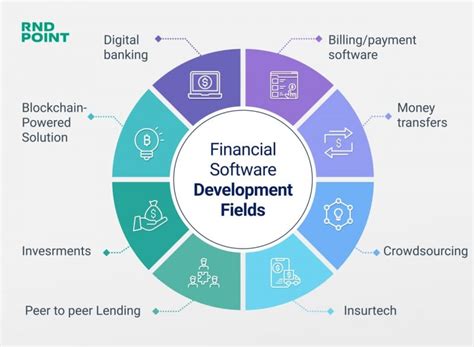The Complete Recipe for Software Development Finance
Software development is a lucrative industry, but it's also capital-intensive. Securing adequate funding is crucial for the success of any software project, whether you're bootstrapping a startup or leading a large-scale enterprise initiative. This comprehensive guide provides a complete recipe for navigating the world of software development finance.
Understanding Your Financial Needs
Before diving into funding options, thoroughly analyze your project's financial requirements. This crucial first step involves several key components:
-
Detailed Cost Estimation: Accurately estimate development costs, including personnel (developers, designers, testers), infrastructure (servers, software licenses), marketing, and contingency funds. Break down costs into phases for better tracking and management. Don't underestimate the time and resources needed!
-
Revenue Projections: Develop realistic revenue projections based on market research, sales forecasts, and pricing strategies. Consider various scenarios – best-case, worst-case, and most likely – to account for market volatility. Be conservative in your estimations.
-
Funding Gap Analysis: Compare your projected revenue with your estimated costs. This gap represents the amount of funding you need to secure. This analysis is critical for determining the type and amount of financing to pursue.
Exploring Funding Options
Once you understand your funding needs, you can explore various options:
-
Bootstrapping: Self-funding the project using personal savings or revenue from other ventures. This route offers complete control but can be limiting for larger projects.
-
Angel Investors: Seeking funding from high-net-worth individuals who invest in early-stage companies in exchange for equity. Angel investors often bring valuable mentorship and industry connections.
-
Venture Capital (VC): Securing funding from venture capital firms that invest in high-growth potential companies. VCs usually invest larger sums but demand significant equity and a strong exit strategy.
-
Crowdfunding: Launching a crowdfunding campaign to raise funds from a large number of individuals online. This approach can be effective for building community and validating your product idea but requires significant marketing effort.
-
Small Business Loans: Obtaining loans from banks or credit unions. These loans typically require collateral and a strong business plan.
-
Grants: Applying for government grants or grants from foundations that support technology development or innovation. This option is highly competitive but can provide significant funding without equity dilution.
Building a Compelling Financial Plan
A strong financial plan is essential for attracting investors or securing loans. This plan should include:
-
Executive Summary: A concise overview of your project, its market opportunity, and financial projections.
-
Company Description: Detailing your company's mission, vision, and team.
-
Market Analysis: A thorough analysis of the market size, target audience, and competitive landscape.
-
Product Description: Clearly outlining the features, benefits, and unique selling proposition of your software.
-
Financial Projections: Presenting detailed revenue projections, cost estimates, and profitability analysis.
-
Funding Request: Specifying the amount of funding you're seeking and how it will be used.
-
Exit Strategy: Describing how investors will receive a return on their investment, such as through acquisition or IPO.
Ongoing Financial Management
Securing funding is only the first step. Effective financial management is crucial for sustaining your software development project. This includes:
-
Regular Financial Reporting: Tracking income, expenses, and cash flow to monitor progress and identify potential problems.
-
Budgeting and Forecasting: Developing and adhering to a budget and regularly forecasting future financial needs.
-
Financial Controls: Implementing robust financial controls to prevent fraud and ensure accuracy.
-
Seeking Professional Advice: Consulting with financial advisors or accountants to gain expert guidance.
By carefully following this "recipe," you can significantly increase your chances of securing adequate funding and successfully launching your software development project. Remember that thorough planning, a compelling business plan, and effective financial management are key ingredients for success.
